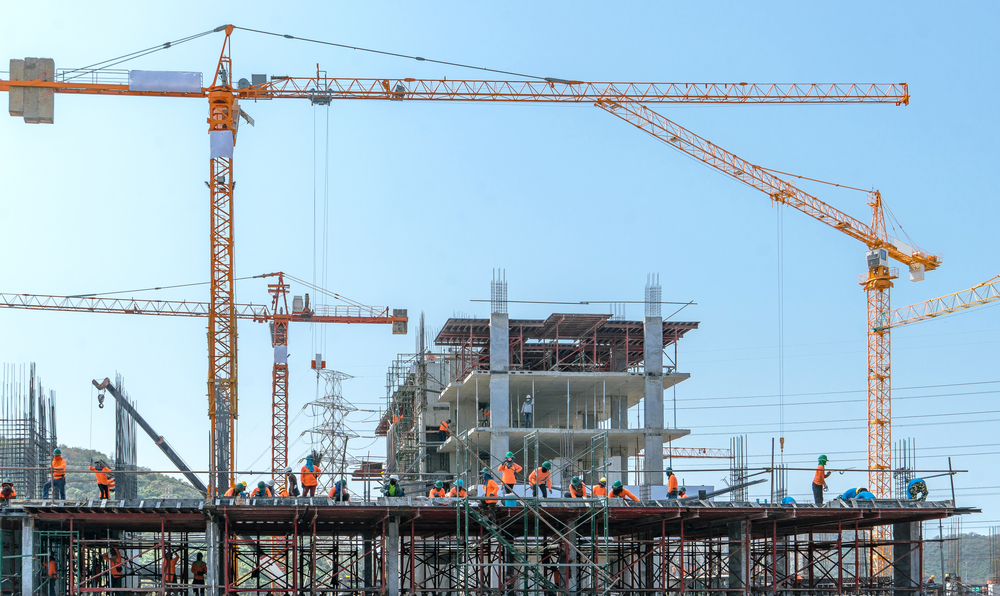News - Construction News
Right to work: where should the responsibility lie?

Clarifying a worker’s right to work in the UK is a thorny issue. In October 2015, the Home Office launched Operation Magnify, designed to highlight the issues (primarily in construction, care and cleaning industries) and to bring about a sea change in attitudes towards the need to check for valid documentation. In this article, Stephanie Fisher, Managing Director of MSite at Human Recognition Systems, looks at whether the industry is taking its responsibilities seriously enough.
Carrying out the right checks
Despite governmental focus, and subsequent fines (up to £20,000 per person) and prison sentences (of up to five years) being imposed on offenders, the construction industry is still perceived as one of the highest risk areas for illegal workers due to lack of enforced controls on right to work. Liability for illegal workers lies with their employer, who has a duty to carry out the correct documentary checks on their direct employees, including employment agencies who employ the worker concerned. Failure to carry out the necessary checks is considered a criminal offence.
In the first quarter of 2017 alone, over 900 workers were found across the UK without the correct permissions to work. Across the calendar year, the resulting fines amounted to over £40M. If the fines are so high and so many illegal workers are getting caught, why is the industry not taking its responsibilities more seriously?
Where does the responsibility lie?
Although main contractors do not have a legal responsibility to carry out documentary checks on sub-contracted workers, they do have to ensure that a system is in place to ensure that those with the responsibility to carry out the checks have done so. The Home Office believes that Tier 1 contractors in charge of overall project governance should be addressing this issue in order to reduce risks on site and improve the overall image of the industry. Speaking about this, Chris Blythe, Chief Executive of the CIOB, said: “It’s too convenient for main contractors to duck out of their responsibilities by blaming the sub-contractor. Contractors who take that line risk reputational damage and are liable to incur significant financial penalties, delays and site shutdowns.”
So the crux of the issue is one of responsibility – who should be responsible for ensuring that the industry is striving to employ 100% legitimate workers? Exploitation of illegal workers is not acceptable and it needs the whole supply chain to come together to increase transparency relating to employees. Tier 1 contractors need to be regularly auditing their own supply chain to check that right to work checks are being properly performed – it should be a contractual obligation. Tier 2 contractors need to ensure that the checks are being done properly by someone trained to do it. It is not a simple system – there are potentially 17 different documents that can be checked and a multitude of combinations therefore that can validate a right to work. The Home Office does offer guidance on the right documentation to ask for but it’s very labour and knowledge intensive.
It might be a difficult process, but that’s no reason to eschew full and proper right to work checks on employees. Knowing that the employees on site have the right qualifications and the right permissions to work there is all about protecting the reputation of your organisation. The Home Office has reserved the right to name and shame organisations employing illegal workers and this type of information can be easily shared. Whilst a single illegal worker can result in a £20,000 fine, a drop in the ocean to a FTSE listed company, the damage to reputation can result in falls in share prices, loss of confidence in a board, future contracts being thrown into question and even prison sentences.
Tackling the issue
There is no doubt that right to work is a topic that is going to come under ever increasing scrutiny with continued focus on modern slavery in the media. With Brexit now firmly penned for March 2019, there will be a renewed need to ensure the rights of workers on construction sites around the UK. The key to successfully tackling this issue for the construction sector is twofold:
- Directors have to take it seriously – it is a responsibility that every part of the supply chain has to take ownership of.
- We need a simple and effective checking system that can be incorporated into the standard checks that all contractors (Tiers 1, 2 and 3) carry out on a daily basis.
The construction industry is no different to any other when it comes to being tarred with the ‘slavery’ image. Taking responsibility for performing the right checks at the right times for the right people will go a long way to protecting the industry and guaranteeing the legitimacy of all workers on UK construction sites.
If you would like to read more articles like this then please click here.
Related Articles
More News
- UK Introduces New Trade Measures to Support Steel Sector
11 Jul 25
Steel producers across the UK will benefit from stronger trade measures from 1 July.
- Clean energy future to be ‘built in Britain’
10 Jul 25
The Clean Energy Industries Sector Plan comes into force to ‘build it in Britain’.
- Thousands more to get the tools they need to start construction careers
9 Jul 25
Thousands of people are set to benefit from on-the-job training and career opportunities in the






